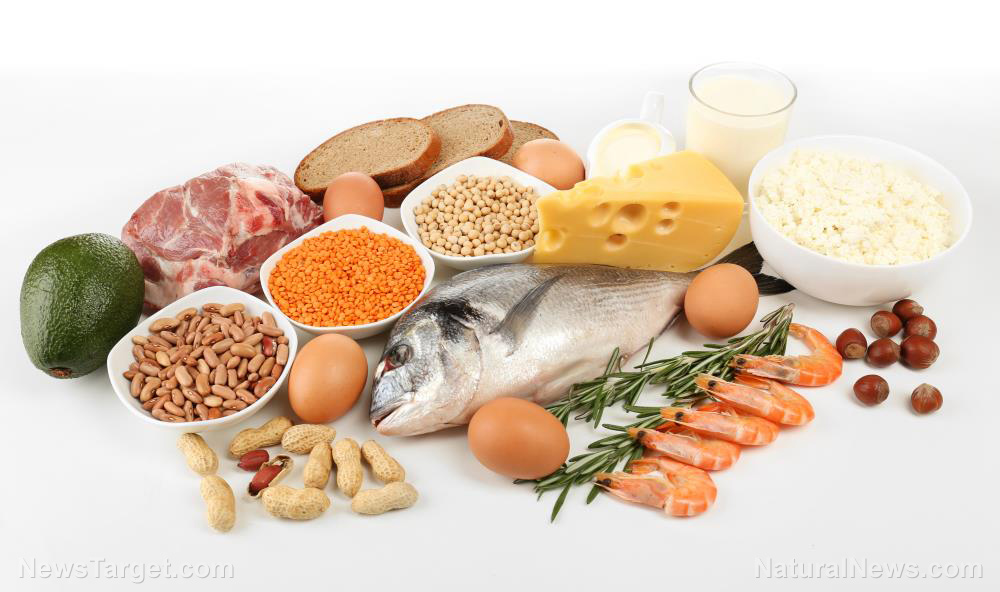Mood foods: How what you eat affects how you feel
10/11/2018 / By Isabelle Z.

Most people would agree that food can affect their mood on some level, whether it’s that warm and fuzzy feeling you get from your favorite comfort dish or the super-alert state that coffee can bring about in some people. However, the connection between food and mood actually goes far deeper than you might realize. Here’s a look at what the science says.
The field of nutritional psychiatry has been growing in recent years, and the timing couldn’t be better. People are taking unprecedented amounts of psych medications, with antidepressant overuse everywhere you look and kids in schools taking ADHD drugs without giving it a second thought. What if the right food could solve many of these problems without all those scary side effects?
A recent study carried out by Johns Hopkins University researchers revealed that consuming nitrate-cured meats can contribute to mania. They found that people who consume a lot of these meats experience behavioral and psychological effects. Perhaps some manic patients could eliminate or reduce their need for medication simply by skipping the bacon and hot dogs.
Depression and diet
When it comes to depression, the possibilities are even greater as several studies have shown that diets that are high in good fats, produce and protein can prevent depression and even cure it in some cases.
A study published in BMC Medicine, for example, found that depressed people who change their diet from a poor one to the Mediterranean Diet saw their depression levels improve significantly. Moreover, nearly one third of those who improved their diet saw their depression symptoms go into total remission. Instead of risky antidepressants, some people may be able to address their depression by focusing on the Mediterranean way of eating, with its organic vegetables and fruits, olive oil, nuts, legumes and whole grains.
Likewise, consuming the wrong foods can raise your risk of depression. In a recent study, Dutch researchers found that the damage a poor diet causes to the capillaries that carry oxygen through the body raises an individual’s risk of depression by as much as 60 percent. This is because damaged capillaries restrict the amount of oxygen that reaches the brain, disrupting chemical levels and causing the neurotransmitter imbalance believed to cause depression.
Probiotics and protein
Your gut releases serotonin, the neurotransmitter that plays a role in the regulation of mood, appetite and sleep. Studies have shown that having a healthy gut can diminish depression, anxiety, and your perception of stress. To get more probiotics in your diet, turn to foods like kombucha, sauerkraut, fermented vegetables, miso soup, and yogurt.
Protein is another mood enhancer. By slowing the absorption of carbohydrates in the blood and enhancing dopamine and norepinephrine release, it can give your energy and mood a boost for several hours after you consume it. Some good, healthy sources of protein include eggs, seafood, Greek yogurt, and poultry.
What about the notion that consuming a lot of sugar makes you hyper? There isn’t a lot of science to back that up, but there is indeed a link between dietary quality and ADHD among children. Eating too many processed foods and refined carbs (which includes refined sugar) can raise the risk of ADHD symptoms. Studies have also shown that a lack of some nutrients in particular may contribute to ADHD, such as magnesium, iron and zinc.
As the rates of children and adults alike taking psychoactive medications continue to rise to concerningly high levels, isn’t it time for everyone to take a closer look at what they’re eating and find out how some simple changes might get them true, risk-free results?
Sources for this article include:
Tagged Under: Antidepressants, depression, food, food and mood, mental health, mind body science, mood, natural depression remedies, natural remedies, prevent disease
RECENT NEWS & ARTICLES
COPYRIGHT © 2017 BRAIN NEWS


















